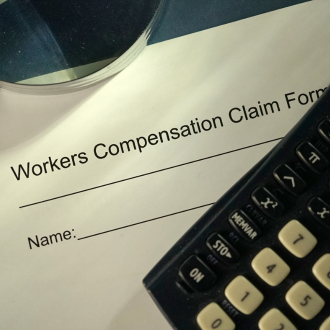
Did you recently lose a close family member in a fatal workplace accident in Hershey, Pennsylvania? You could be entitled to workers’ compensation death benefits to provide financial support to help your family through this difficult time.
What Happens If a Worker Dies at Work?
If a worker dies on the job in Hershey, Pennsylvania, their employer must report the death immediately so the deceased’s family can claim workers’ compensation death benefits from the employer’s insurance company. Death benefits include both a portion of the worker’s fatal workplace accident in Hershey, Pennsylvania’s lost wages and reasonable funeral expenses, as well as the cost of related medical expenses for the deceased employee. The purpose of death benefits is to help dependents (such as a spouse, children, or parents) cope with the loss of the deceased’s income.
Requirements to Receive Workers’ Comp Death Benefits in Hershey, Pennsylvania
To receive Pennsylvania workers’ compensation death benefits, survivors must meet specific criteria. First, they must be the deceased’s spouse, child, parent, or dependent sibling. Additionally, the deceased must have died due to a work-related injury or illness. Finally, claimants must file within certain deadlines to ensure eligibility.
Surviving spouses must prove that they were living with the deceased at the time of death or depended on them financially. Children and siblings qualify if they are under 18. If children or siblings are older than 18, they must have been dependent on the deceased worker due to a disability or be full-time students up to age 23. Parents qualify if they depend on the deceased financially, either partially or totally.
Recurring Death Benefits Under the Pennsylvania Workers’ Compensation System
Pennsylvania’s workers’ compensation system provides recurring death benefit payments to the surviving family members of a deceased worker who died in a workplace accident or from an occupational illness. It establishes a minimum base for the deceased worker’s wages as 50 percent of the statewide average weekly wage (SAWW) for calculating workers’ comp death benefits.
Here’s an overview of how death benefits are divided among survivors under Pennsylvania law:
- No surviving spouse – Compensation is paid to the child’s guardian or another designated person. The percentage of the deceased’s weekly wages to be paid varies with the number of children, ranging from 32 percent for one child to 66.67 percent for six or more children, up to the SAWW. If the children are with different guardians, the amount is divided equally among them.
- Surviving spouse without children – A widow or widower with no children can recover benefits totaling 51 percent of the deceased’s weekly wages, not exceeding the SAWW.
- Surviving spouse with children – If the surviving spouse is the guardian of all the deceased’s children, they can receive death benefits equal to 60 percent of the weekly wages for one child and 66.67 percent for two or more children, subject to the same maximum limit.
- No surviving spouse or child – Dependent parents may receive compensation ranging from 32 percent (for partial dependency) to 52 percent (for total dependency) of the deceased’s wages, up to the SAWW.
- No immediate family members – Dependent siblings may receive compensation, starting at 22 percent for one sibling and increasing by 5 percent for each additional sibling, up to 32 percent of the deceased’s wages.
- Funeral expenses – Regardless of dependents, up to $7,000 for funeral expenses is covered by the employer or insurer and paid directly to the funeral home.
How Our Hershey Workers’ Compensation Lawyers Can Help
If you need help with a death benefits claim, don’t hesitate to contact a knowledgeable Hershey workers’ compensation attorney with Calhoon & Kaminsky P.C. We offer a free consultation to discuss your case and how we can help you receive benefits. Let us support you during this difficult time.
Contact us today to get the guidance and assistance you deserve after a fatal workplace accident claimed your loved one’s life.




